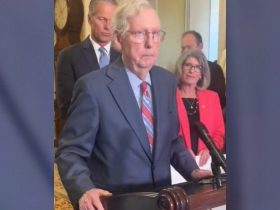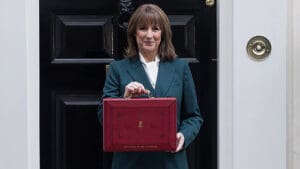Chancellor Rachel Reeves’ reported plan to impose a 20% “exit tax” on the business assets of wealthy individuals leaving the UK has sparked a furious backlash from the financial sector, with critics warning it could drive away entrepreneurs and investors.
The proposed measure — described as a “settling-up charge” — would levy capital gains tax on the holdings of those relocating to low-tax jurisdictions. Treasury insiders reportedly believe it could raise around £2 billion in additional revenue.
But Nigel Green, CEO of deVere Group, one of the world’s largest independent financial advisory and asset management firms, called the proposal “reckless and self-defeating.”
“The government seems determined to make the UK an increasingly unattractive place for wealth creators,” Green said. “The introduction of an exit tax would accelerate the exodus of entrepreneurs, business owners and investors who already feel punished for their success.”
Green warned that the policy would damage Britain’s competitiveness at a critical time and could cost the Treasury more than it raises.
“This policy wouldn’t just fail to raise meaningful revenue; it would destroy confidence, reduce investment and, ultimately, cost the Treasury far more in lost economic activity than it could ever recoup through short-term taxation,” he said.
The firm has already seen a sharp rise in wealthy individuals reassessing their exposure to the UK, he added, amid fears the country is no longer friendly to business or enterprise.
“Investors and business leaders are already viewing the UK with increasing caution. They’re redirecting capital to economies that reward ambition and provide stability. Britain should be working to attract international wealth, not signalling that it intends to penalise it.”
Reeves’ expected Budget later this month comes as the UK faces slowing growth, weak business investment and declining consumer confidence. Analysts have warned that the Chancellor is set to oversee the fastest tax increases in over half a century.
Green argued that adding an “exit charge” to that mix would send a damaging signal to global markets.
“That alone would spook global capital, but combining it with an exit charge would send a message that Britain has given up competing,” he said. “The result would be a sustained erosion of confidence and a steady relocation of capital to rival jurisdictions.”
The deVere chief said the proposal reflects a short-term, politically driven mindset that risks undermining long-term prosperity.
“The abolition of the non-dom regime, rising corporate taxes and the highest personal tax burden in decades have already eroded confidence,” he said. “An exit tax would be the final signal that the UK is no longer open to wealth, investment or aspiration.”
Green urged the Chancellor to focus on policies that attract innovators rather than penalising success.
“Prosperous economies are built on encouraging growth, not constraining ambition. Imposing a departure charge is the economics of retreat,” he said.
He added that while an exit tax might appear politically expedient, it risks a “historic loss of wealth, talent and confidence” as capital moves to rival hubs such as Dubai, Singapore and Switzerland.
“Other financial centres are already benefitting from the UK’s self-inflicted policy drift. The country can’t afford to keep exporting its most productive citizens,” he warned.
Green also cautioned internationally mobile individuals and business owners to review their residency and succession plans before any such policy is enacted.
“This proposal adds urgency for globally active entrepreneurs to seek expert advice before further restrictions or taxes are imposed,” he said.
He concluded: “Instead of chasing those who decide, as is their right, to leave, the focus should be on persuading more to invest — ensuring that Britain remains a place where ambition and enterprise are rewarded, not punished.”
Read more:
Reeves’ ‘exit tax’ plan branded “reckless and self-defeating” by leading wealth adviser











